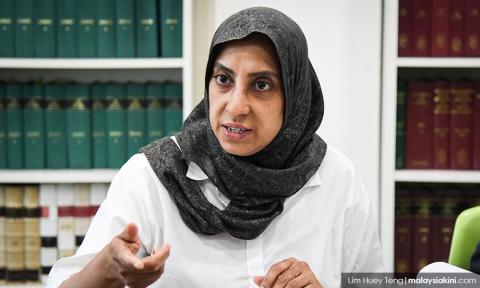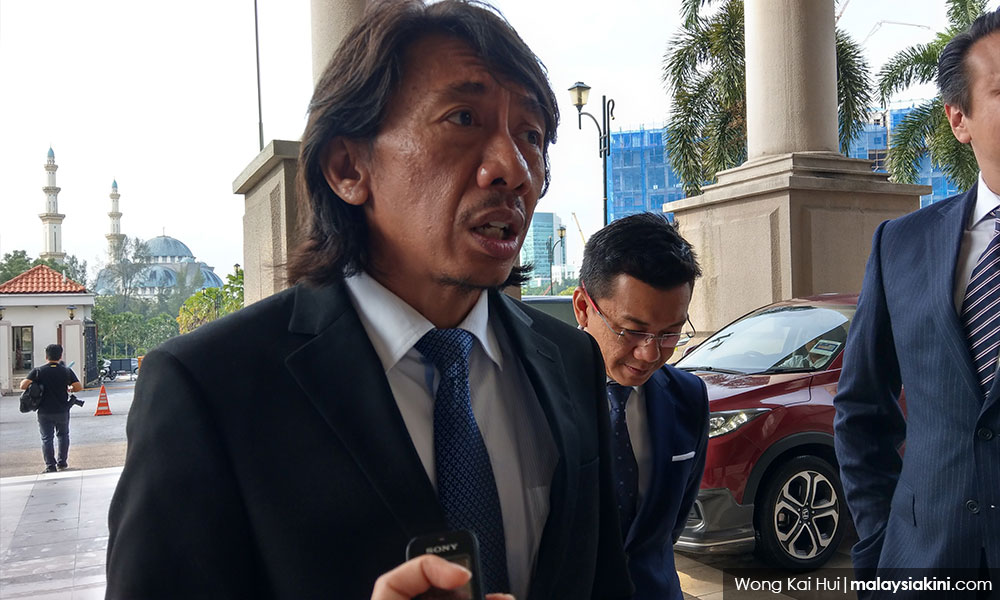
Lawyer Latheefa Koya has joined the growing clamour from lawyers to reassess the case of Mainthan Arumugam who was convicted of murder in 2004.
“I wonder whether our MPs would read this and realise the power is in their hands,” she tweeted after an emotional article in FMT yesterday in which the news portal interviewed Agilandeswari Mainthan, the 18-year-old daughter of Mainthan.
Mainthan was originally one of four convicted by the Shah Alam High Court in 2004 of the murder of Manivanan Vellasamy. The others were T Yuganathan, T Adiswaran and A Param Sivam.
Their initial appeal was dismissed by the Court of Appeal in 2005. But in 2006, the Federal court found that the convictions of the other three were not safe and set them aside.
However, Mainthan’s conviction and sentence were upheld.
“There are lots of discrepancies in this case,” Latheefa told Malaysiakini.
“We have to look at the safety of the conviction. Once there is a doubt we have to take a step back because if we move to the execution stage, it will be irreversible.”
Latheefa, who is Lawyers for Liberty executive director, said that while there is a moratorium on the death penalty pending a final decision by the government, Mainthan’s sentence could still be carried out if the government wavers on its commitment.
His case was recently highlighted in "Menunggu Masa" (Waiting for the time), a documentary which was screened officially at the World Congress Against the Death Penalty in Brussels, Belgium on March 1.
The documentary was produced by lawyers Khaizan Sharizad, who is also known as Sherrie, and Seira Sacha Abu Bakar.
“We wanted to make a documentary on social justice. We wanted to tackle the death penalty in a film that was character-based, not issue-based,” explained Sherrie.
The film tells of the suffering of Mainthan’s wife Gunalakshmi and four children who have grown up in challenging circumstances.
Effectively a single mother, Gunalakshmi works as a cleaner in a school and has brought up her children to be self-reliant.
“We wanted to highlight a case that shows all the loopholes and ambiguity that exist in the system,” said Sherry.
“If you listen to the witness accounts, it’s not clear that Manivanan was the ‘murder victim’ and there is evidence that he left the scene.”
Mistaken identity
In 2015, lawyer Amer Hamzah filed a review based on a possible error pertaining to the identity of the victim.
The original charge sheet listed the victim as "Manivanan a/l Vellasamy" even though he held an Indian passport, said Amer (photo) who felt the term "a/l" should only apply to Malaysians.

The most compelling case for mistaken identity is that a different man, known as Devadas, has now stepped forward saying that the man identified in a violent altercation at the time of Manivanan’s supposed death was not Manivanan, but Devadas himself.
Manivanan had initially courted trouble through an alleged illicit relationship, while Devadas had been accused of stealing from a workshop. In the documentary, Devadas asserts that the conviction was based on a case of mistaken identity.
Despite a statutory declaration to this effect by Devadas, and Mainthan facing a total of 19 judges during his many rounds of legal action, he remains on death row.
Lawyer Samantha Chong said Mainthan’s case shows shortcomings in the system.
She added that our legal system is so inflexible, adducing evidence at the appellate court could prove to be an uphill task even if it is valid.
“In many cases, the accused are poor and don’t have the same resources as the government to prepare their defence. Often they are remanded for too long and it’s difficult to track down defence witnesses."
Chong said it is worse when some investigators fail to investigate objectively and look into the defence’s version.
"The defendant will be reliant on court-appointed counsel whose quality may be inconsistent. This is why you almost always find the poorest and the most marginalised people on the death row," she added.
Meanwhile, Latheefa said: “At the moment, Mainthan’s execution is also put off following the moratorium, but this is pending the government’s decision.
"They may just take away the mandatory death penalty element in sentencing and then people like Mainthan will be facing the gallows again.”
“This is why it’s very dangerous for the government to pay too much heed to public opinion on issues of life and liberty like the death penalty.” - Mkini



No comments:
Post a Comment
Note: Only a member of this blog may post a comment.